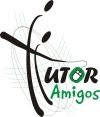by Karen Singer - November 5, 2007
Eliana Rojas believes students learn mathematics better when taught in their native language, and she has federal backing to put her theory into practice.
The U.S. Department of Education recently awarded Rojas a $1.5 million grant “to prepare teachers of English language learners to accelerate their students’ academic achievement.”
The grant focuses on the preparation and professional development of bilingual and Teachers of English to Speakers of Other Languages (TESOL) math teachers, in order to provide appropriate and effective instruction to adolescents who are learning the English language...
“We know a large percentage of Latino adolescents are failing mathematics, and a large percentage are dropping out of high school in 10th grade,” Rojas says.
“So we need to find ways for the students to continue to learn mathematics in Spanish." English language learners often “have acquired math in schools where they’re coming from, but don’t understand math here,” Rojas says.
“Native Spanish speakers see mathematics as a continuum,"...
“Here we compartmentalize it into algebra, geometry, and pre- calculus.” Latinos also take a more cooperative approach to learning math, she adds, whereas in America the process is individualized."
“If you lose your language, you lose the spirit of your culture. And mathematics is a good avenue for students to develop both their first and their new language, because the ability to think logically and reason deductively are embedded in every domain of learning.”
Go to original article
Subscribe to:
Post Comments (Atom)





No comments:
Post a Comment